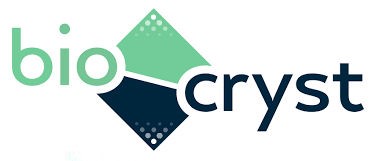
BioCryst Reports Positive Drug Trial Results

A novel drug candidate aimed at preventing and treating hereditary angioedema (HAE) – a recurrent and severe swelling disorder – has shown positive results in a clinical trial, according to its Durham-based developer, BioCryst.
In the exploratory trial, called Zenith-1, a single 750-milligram oral dose of the compound was well tolerated and superior to placebo against most of the efficacy endpoints studied in HAE patients suffering an acute attack, BioCryst Pharmaceuticals said in a news release.
“Zenith-1 represents a groundbreaking study, as the first clinical trial to demonstrate effective treatment of acute HAE attacks with an oral therapy,” said the trial’s principal investigator Hilary Longhurst, Ph.D., honorary consultant immunologist at Addenbrookes Hospital in Cambridge, England.
Longhurst said the observed effect of the medicine, BCX7353, within one hour of dosing and the reduced use of rescue medication compared to placebo “suggest that BCX7353 has outstanding potential to offer physicians and patients an urgently needed new oral therapy option.”
Once-daily oral relief from debilitating condition
BCX7353 is being developed as a once-daily capsule for inhibiting plasma kallikrein, an enzyme in the bloodstream. Unchecked activity of the enzyme due to genetic mutations can cause fluid to leak from blood vessels into connective tissue, resulting in severe swelling, often in the hands, feet, face, throat or intestinal tract.
HAE is a potentially life-threatening disease that affects about 1 in 10,000 to 50,000 people. It typically begins in childhood and worsens in teen and adult years.
To guide selection of dose and endpoints for a potential future registration trial for the acute treatment of HAE attacks, Zenith-1 was designed as an exploratory trial. Scientists wanted to determine if BCX7353 showed a clinically meaningful benefit on any of several different efficacy endpoints evaluating HAE attack symptom severity.
In the trial 33 patients self-treated 64 attacks of HAE with BCX7353 and 31 attacks with placebo on a blinded basis. They recorded their symptoms and attack severity using both a Visual Analog Scale (VAS) and a standardized questionnaire.
Compared to placebo, improvement in symptoms and VAS scores was seen as early as one hour after oral BCX7353 dosing and was sustained through 24 hours while the use of standard-of-care medication through 24 hours was reduced by 31 percent after BCX7353 dosing compared with placebo.
BCX7353 was generally safe and well tolerated, with no serious adverse events reported.
The results of Zenith-1, combined with the results of an earlier trial, “are evidence that BCX7353 would be the first safe and effective oral drug for both treating and preventing HAE attacks,” said Jon Stonehouse, president and chief executive officer of BioCryst. “We know the HAE community is waiting for an oral option.”
One more clinical trial planned before marketing
Stonehouse said the company will complete another trial before seeking product approval.
BioCryst designs and develops novel small-molecule medicines that address both common and rare conditions. In addition to BCX7353, it is developing medicines for treating filoviruses fibrodysplasia ossificans progressiva.
RAPIVAB, a viral neuraminidase inhibitor to treat influenza, is BioCryst's first approved product and has received regulatory approval in the U.S., Canada, Australia, Japan, Taiwan, Korea and the European Union.
BioCryst, founded in 1986, is headquartered in Durham and has a research and development center in Birmingham, Ala.
BioCryst terminated a proposed merger agreement with Idera Pharmaceuticals of Cambridge, Mass., in July after BioCryst’s stockholders rejected the deal. BioCryst continues to operate as a stand-alone company with its shares traded on the Nasdaq stock exchange.
